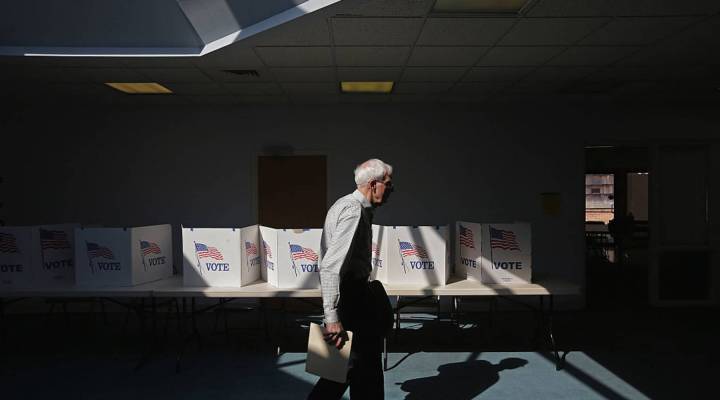
The power of superdelegates and campaign contributions

As you look for tallies of delegates won in the Super Tuesday voting, consider this: some of those delegates — the people who attend the party conventions and actually do the nominating for the Democrats and Republicans — are able to take campaign contributions from the presidential candidates.
On the Democratic side, these are the superdelegates. They’re politicians, not pledged to anyone. They vote for whomever they want.
Superdelegates are usually members of Congress, governors, or officials of the Democratic National Committee. And campaign contributions from the candidates are pretty common.
“I think we need to be profoundly worried about money and politics in America,” said Christopher Robertson, a professor of law at the University of Arizona who studies campaign finance — specifically, how contributions affect behavior. He’s found that if people are given money, they feel like they need to reciprocate. He thinks that could be a factor in a close contest at the party convention.
“And if the final tally is a close one, you can imagine a few votes on the margins shifting because of these feelings of reciprocity that are created by money,” Robertson said.
There were lots of campaign contributions to Democratic superdelegates during the 2008 presidential campaign, both from Barack Obama and Hillary Clinton.
“In our research from 2008, campaign contributions for Obama and Clinton predicted endorsements for them 80 percent of the time,” said Sheila Krumholz, executive director of the Center for Responsive Politics, a campaign finance watchdog that studied those contributions.
In other words, the presidential candidate who gave money to a superdelegate usually got that delegate’s vote. Krumholz said there’s a strong correlation, but not a clear cut quid pro quo.
That’s a point David Hopkins emphasizes, too. He teaches political science at Boston College. He said the superdelegates weigh a lot of factors when deciding who gets their vote at the convention.
“Who do the voters in my district support,” he said. “Who do I think would be a better president? Who do I agree with more on the issues? Who do I think would be a stronger candidate for the party in the general election?”
Hopkins said superdelegates aren’t as big a part of the mix in the free-for-all race for the Republican nomination. Some Republican National Committee members have something like a superdelegate role, but it’s a much smaller group of people.
There’s a lot happening in the world. Through it all, Marketplace is here for you.
You rely on Marketplace to break down the world’s events and tell you how it affects you in a fact-based, approachable way. We rely on your financial support to keep making that possible.
Your donation today powers the independent journalism that you rely on. For just $5/month, you can help sustain Marketplace so we can keep reporting on the things that matter to you.


















